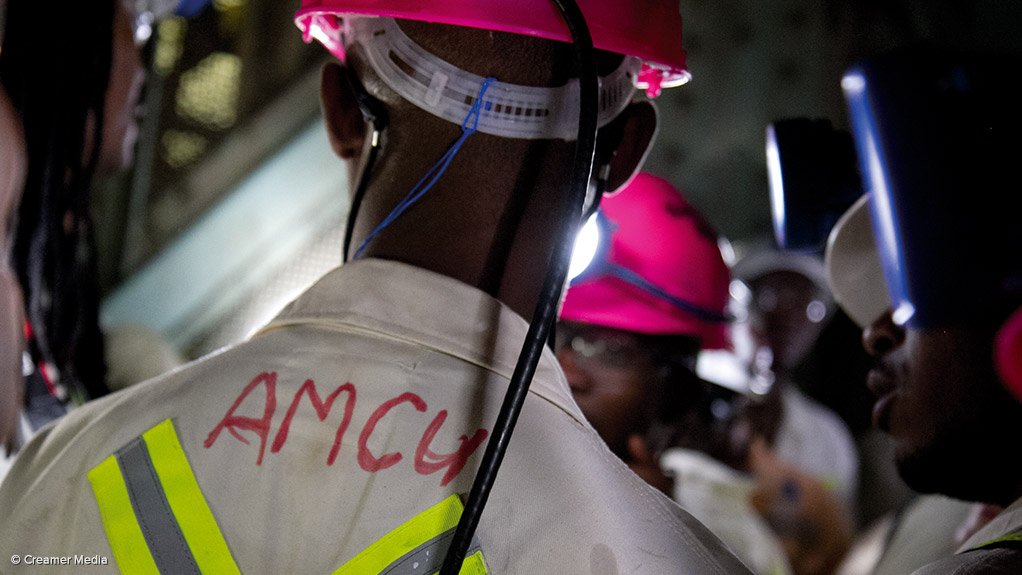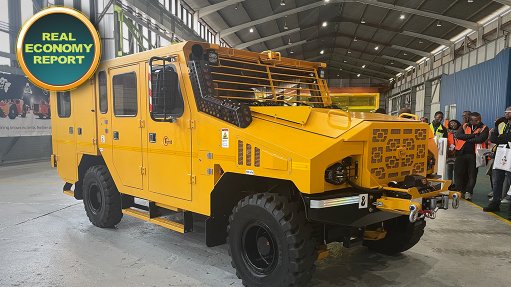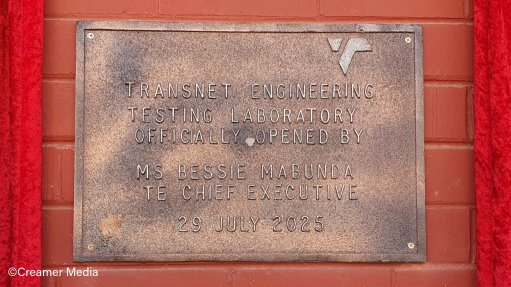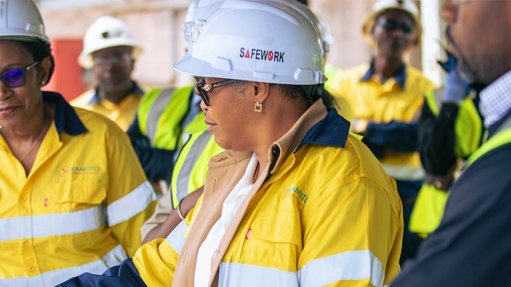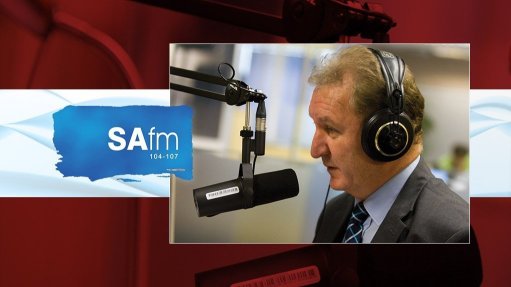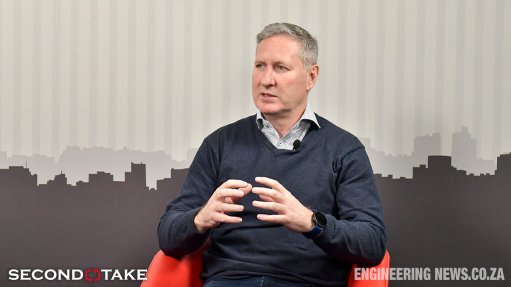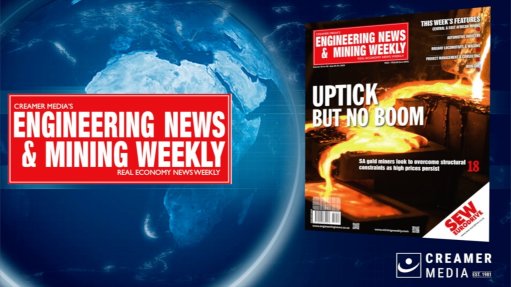Platinum miners brace for labour clash in early Ramaphosa test
JOHANNESBURG – When the world’s biggest platinum miners sit down with labour unions this month to negotiate a three-year wage deal, it could prove an early test of Cyril Ramaphosa’s new presidency in South Africa.
An amicable outcome will bolster Ramaphosa -- the former mine union leader and one-time platinum company investor -- as he seeks to lure foreign investors. However, tensions are fraught on both sides and there are fears the labour unions will go on strike, which could send platinum prices soaring.
“Ramaphosa’s key priority is to send a positive signal on reforming the economy, but there will be high levels of instability after the election,” said Andre Duvenhage, professor of politics at North West University. “The platinum belt is probably the most volatile environment in South Africa.”
Khusela Diko, a spokesperson for Ramaphosa, declined to comment.
The industry is bracing for a tough round of talks. The Association of Mineworkers and Construction Union, the largest and most militant labour organization in the sector, is expected to push for higher wages as the industry reaps windfall profits. Across the negotiating table, some producers have accumulated cash to withstand a repeat of the prolonged and violent strike in 2014.
Preliminary wage talks should start this month, according to Johan Theron, a spokesperson for Impala Platinum Holdings. The negotiations will pit AMCU and three other labour unions against at least seven producers, including Anglo American Platinum and Sibanye Gold.
Optimists can point to the relatively smooth negotiations during the last wage round three years ago, when Anglo American’s platinum unit was first to agree a deal with AMCU. The union accepted an increase of 12.5% for the lowest paid workers, after initially demanding a 47% increment.
However, some fear AMCU is gearing up for industrial action after South Africa’s regulator threatened to deregister the union for failing to hold a regular congress and leadership elections. That could potentially impair the union’s ability to negotiate with mining companies and collect dues from its members.
“The likelihood is that workers may be upset and go on a strike again,” said retired Anglican Bishop Johannes Seoka, who played a key role in mediating an end to the 2014 dispute. “That will impact negatively on mining, which is already struggling. Workers will lose.”
Deregistering AMCU could have far-ranging repercussions, said Crispen Chinguno, a senior lecturer in sociology at Sol Plaatje University in the Northern Cape province.
“It may push AMCU to adopt a more combative strategy in its struggle for survival,” he said.
AMCU leader Joseph Mathunjwa, who has long been critical of the ruling African National Congress, said there’s a political agenda behind moves to deregister the union. When asked last month, he declined to say who he thought was behind the move, but asked: “Who are the richest black people in South Africa?”
Platinum-group metals are one of South Africa’s biggest exports, but less than year ago producers were closing shafts and cutting thousands of jobs as a stronger rand combined with stagnating metal prices to squeeze profit margins. Another platinum strike would hurt both the industry and the unions, according to Peter Major, a mining analyst at Mergence Corporate Solutions.
“There is no more commodities boom, and no money for mining investments in South Africa,” he said. “This country’s economy is on its knees and mines are really shedding jobs.”
Some producers are yet to recover from the 2014 strike, which cost about $2-billion in revenue. More than half of the nation’s production of PGMs is either marginal or unprofitable, according to the Minerals Council South Africa, a lobby group that includes most of the mining companies operating in the country.
As platinum-industry investors gather in London this week, they will be casting a wary eye toward South Africa. Miners’ earnings have rebounded on a weaker rand and rally in palladium and rhodium prices, but some producers seem in little mood to compromise.
“Don’t try to force our hand with a threat of a strike, because quite honestly we will take a strike,” Sibanye CEO Neal Froneman said in an interview in Johannesburg. “We are not intimidated by those types of things.”
Comments
Announcements
What's On
Subscribe to improve your user experience...
Option 1 (equivalent of R125 a month):
Receive a weekly copy of Creamer Media's Engineering News & Mining Weekly magazine
(print copy for those in South Africa and e-magazine for those outside of South Africa)
Receive daily email newsletters
Access to full search results
Access archive of magazine back copies
Access to Projects in Progress
Access to ONE Research Report of your choice in PDF format
Option 2 (equivalent of R375 a month):
All benefits from Option 1
PLUS
Access to Creamer Media's Research Channel Africa for ALL Research Reports, in PDF format, on various industrial and mining sectors
including Electricity; Water; Energy Transition; Hydrogen; Roads, Rail and Ports; Coal; Gold; Platinum; Battery Metals; etc.
Already a subscriber?
Forgotten your password?
Receive weekly copy of Creamer Media's Engineering News & Mining Weekly magazine (print copy for those in South Africa and e-magazine for those outside of South Africa)
➕
Recieve daily email newsletters
➕
Access to full search results
➕
Access archive of magazine back copies
➕
Access to Projects in Progress
➕
Access to ONE Research Report of your choice in PDF format
RESEARCH CHANNEL AFRICA
R4500 (equivalent of R375 a month)
SUBSCRIBEAll benefits from Option 1
➕
Access to Creamer Media's Research Channel Africa for ALL Research Reports on various industrial and mining sectors, in PDF format, including on:
Electricity
➕
Water
➕
Energy Transition
➕
Hydrogen
➕
Roads, Rail and Ports
➕
Coal
➕
Gold
➕
Platinum
➕
Battery Metals
➕
etc.
Receive all benefits from Option 1 or Option 2 delivered to numerous people at your company
➕
Multiple User names and Passwords for simultaneous log-ins
➕
Intranet integration access to all in your organisation



